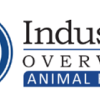Recent Posts
- Building a Robust and Diverse Ecosystem Innovation Ecosystem in the Animal Health Industry
- Cultivating A Champion Culture: Balancing Performance and People in Animal Health
- How Stable are Earnings in Animal Health? Results of the Animal Health Jobs 2025 Salary Survey
- Entry Fees for the Race for Talent: Results of the Animal Health Jobs 2025 Salary Survey
- Looking In The Gift Horse’s Mouth: The Pros and Cons of Counteroffers in Animal Health
Most Popular
-

How Stable are Earnings in Animal Health? Results of the Animal Health Jobs 2025 Salary Survey
-

How Will Artificial Intelligence Change Jobs In Animal Health?
-

News to Know from Brakke Consulting’s 2025 Animal Health Industry Overview
-

Building a Robust and Diverse Ecosystem Innovation Ecosystem in the Animal Health Industry
-

Entry Fees for the Race for Talent: Results of the Animal Health Jobs 2025 Salary Survey
The Evolution of Hybrid Working in Animal Health

It’s become almost a cliché to say that the COVID-19 pandemic changed work patterns in animal health. From curb side appointments at small animal clinics to 100% virtual corporate strategy sessions, we all learned new ways of working.
In the animal health industry, employees embraced working from home. In the Animal Health Jobs spring 2022 Attitudinal Survey, a remarkable 93% of animal health insiders listed the option for remote work as a key reason to accept or reject an offer.1 More than 80% of managers reported equal or greater productivity with virtual work as compared to in-office arrangements.2 Hybrid work programs had become a firm expectation for animal health job candidates, and a common way of doing business.
Changing expectations for hybrid work
Now, though, the winds are shifting again. Almost one-third (30%) of hiring managers we surveyed in late 2022 reported that their companies would not allow remote work in the future.2 Certain roles, like sales and professional services, require in-person contact for relationship building and more effective communication. Just as veterinarians need to physically see their animal patients, people in these roles need actual facetime with customers for maximum effectiveness.
Companies within and outside of animal health are applying a variety of strategies to reduce remote working. Some are requiring a minimum number of days at work, often 3 or 4 per week. Others have returned to 100% office presence. As Elon Musk famously wrote in his memo to Tesla employees, “If you don’t show up, we’ll assume you have resigned.” Yet in 42% of companies requiring workers to return to the office, more employees are leaving than management expected. What happens now?
The right path(s) for animal health
What’s the right way forward for the animal health industry? There may be several. As Kristin Peck, CEO of Zoetis, has said, flexibility [in work arrangements] can mean different things to different people and in different jobs.
The wisest animal health companies tailor their policies to the needs of the company and the consumer as well as that of the employee. Hybrid working policies can vary for different roles.
Laboratory- or factory-based associates may be able to flex their presence based on the time requirements of a particular study or process. Sales professionals might return to the pre-pandemic common pattern of 4 days on the road, 1 day at home for administrative time.
For desk-based workers, companies may consider mandating certain activities that must be face to face, rather than a minimum amount of time in office. Remote work hours can change over the course the year, with more office hours per week in the busy season and fewer in quieter periods.
Companies must be transparent about their decisions. Remote work policies must be developed with employee input across levels and functions, and must balance guardrails and freedom. Leaders must ensure that employees who work remotely do not lose out on opportunities for advancement.
What will the employees think?
If you’re wondering what animal health job holders and animal health job seekers think about a reduction in remote work opportunities, you’re not alone. This year’s Animal Health Jobs Autumn Survey will explore participants’ views on remote and hybrid work arrangements. We’ll assess any changes in the norms established in the pandemic years and look for differences in attitudes across demographics. If you would like to be part of the discussion, sign up now for our newsletter and be first to know when the survey goes live: complete results will be posted in a white paper, with extracts available in this blog.
---
Looking for your next deeply engaged employee? The candidates in the Animal Health Jobs database are all experienced insiders who love the industry and want to make a difference. Register your job posting and join the top animal health and animal nutrition companies in finding the best candidates in the field.
Register for job alerts and our newsletter to stay on top of the latest jobs and trends in animal health and animal nutrition.
References
- Animal Health Jobs Spring 2022 Candidate Attitudinal Survey. Published 13 May, 2022. Accessed 2 August, 2023. Available at https://animalhealthjobs.com/blog/3865/animal-health-jobs-spring-2022-candidate-attitudinal-survey
- Animal Health Jobs Survey of Hiring Practices. Published 15 February, 2023. Available at https://animalhealthjobs.com/blog/4532/animal-health-jobs-survey-of-hiring-practices



Comments